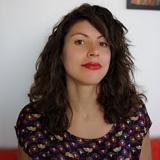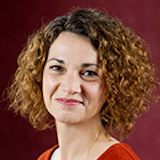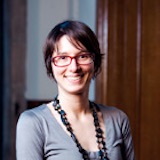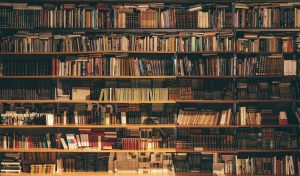
The Department of Comparative Literature BA Module descriptions are up!
Please note that this blog was produced in spring 2020. Although it was up-to-date at the time it was produced, some changes to courses, modules and teaching staff may occur. Please make sure you check our website (www.kcl.ac.uk/ug) or contact us directly for the very latest information before you commit yourself to any of our courses.
First year modules:
Sebastian Matzner – Comparative Literature: Theoretical Foundations

This module offers an introduction to literary and critical theory as it developed over the course of the twentieth century. Theory sometimes has a bad name, as if it made literature unnecessarily complicated or took the fun out of it. Nothing could be further from the truth! Theory simply means stepping back to think about what it is that you are doing and how you are doing it: What actually happens when we read a text? Where do we think the meaning of a text comes from (and is there only one, or are there many meanings; and if there are many, are they all equally valid)? Where should we turn if we want to know more about a text: to its author, to its context, to its language, or to deeper forces at work that shape the very process of literary creation? And what consequences do the choices we make between these options have for what we end up seeing in the texts we read (and, correspondingly, what falls out of focus)? Over the course of this module, you will hear different answers to these questions, and they will all offer unique ways for approaching literature. They will challenge the way you think about texts, about language, about identity, about the relationship between the world we live in and the stories we tell about it. In the process, this module not only introduces you to the foundational ideas of Comparative Literature as a discipline, it also provides you with a toolkit that will serve as a foundation for your own adventures in critical comparative reading and thinking as you embark on your degree.
Justine McConnell – Genres of World Literature

This first-year module explores world literature across a range of genres, including graphic novels, poetry, song, drama, short stories, and film. Examining works from Africa, the Caribbean, the Pacific, and the Middle East, we’ll consider the impact that different genres can have and we will see how theories of postcolonial and world literature can be used to illuminate these works. We will ask questions about the kinds of aesthetic and ideological work that these genres do in relation to different geographical and cultural sites, and you’ll have the opportunity to consider, for example, the work of reggae artist Jimmy Cliff alongside graphic novelist Joe Sacco, or Wole Soyinka’s drama alongside Edwidge Danticat’s short fiction.
Second year modules:
Sebastian Matzner – Literature of Empire
Imperialism and colonialism have shaped our world to an extent that cannot be overestimated. It goes without saying that literature is also deeply affected by these historical developments – but what forms exactly does this take? How far does their impact on the writing and reading literature go? And, what about the other way around: what active contribution has literature made to imperial conquests and colonial regimes; and how has it offered critiques of them, both from within and from without? This module goes beyond conventional ‘postcolonial literature’ courses in a way that is very characteristic for our department: by including texts from periods, places, and perspectives rarely studied under this umbrella term, we will seek to expand our understanding of the relationship between literature and global politics as well as complicate some preconceived notions about it.
Sara Marzagora – Ideas of Nationkli

This is one of the most exciting modules I have taught in my career. It asks what I think is a central question in present-day literary studies: what is the role of national literatures in a time of globalisation? Today, you can attend a literary festival with writers from all over the world, read literature translated from a variety of languages into your mother tongue, you can use the internet to buy books printed in countries far away from yours. More and more critics argue that we cannot study literature within national borders anymore, and the study of national literatures has to be replaced by the study of “world” literature. And yet in the last year we have seen a strengthening of nationalist feelings, so how do we make sense of these apparently opposite trends?
The course starts off from highlighting the pivotal role of genres like the novel and newspapers in the creation of modern nationalism, and then moves to discuss how writers from around the world have related to (and often criticised) the national project, for example from the point of view of class, gender, and sexuality. One of the theoretical issues I always find stimulating to discuss with students is the difference between Western and non-Western texts and the way they relate to the national project. The course ends with a class on the future of the nation, which analyses how writers from across the world invented utopic national communities in their writing, as a way to discuss how the nation can be reimagined as a more equitable and inclusive community.
Justine McConnell – Caribbean Drama
If you are interested in drama and performance, in postcolonial literature, or in the Caribbean, this second-year module is for you! Focusing on the Caribbean, we will explore postcolonial drama, asking what distinguishes drama from other literary works. We’ll think about what it means to label ‘the Caribbean’ as a united entity, and we will consider why a region that incorporates such a diversity of cultures, languages, histories, and ethnicities has often been grouped together as one space. We study one play each week from across the Anglophone, Francophone, and Hispanic Caribbean, including works from Cuba, Jamaica, Martinique, Trinidad, St Lucia, and Guadeloupe. Knowledge of French and Spanish is not required (and English translations will be referred to throughout), but you are more than welcome to read plays in the original if you are able to.
Justine McConnell – The Canon

This second-year module explores the ideas and motivations that have lain behind the formation of literary canons from antiquity to the present day. Many well-known works have been declared to be part of ‘the Western canon’, for example, but what does this mean and why did certain works come to be categorised in this way? We will consider the advantages and disadvantages of the canon as an organisational principle, examining how it has developed over time and discussing whether inclusion or exclusion from a literary canon helps or hinders our reading of literary texts. We’ll ask how the canon satisfies the different interests of authors, publishers and readers, and the extent to which it’s defined by historical circumstances and political stances. And we will debate whether, in the modern day, a redefined canon is possible or even desirable.
Sebastian Matzner – The Promise of Poetry: What is Poetic Language?
There is something magical about poetry. After all, when people experience something truly spell-binding, they sometimes call it “sheer poetry”. On the other hand, if we find something a bit banal and boring, it quickly gets labelled as “prosaic”. But what is this special something that sets poetry apart and, for many readers, above all other forms of language? Throughout the ages, people have held strikingly different views on what poetry is and does, what makes poetry ‘good’ poetry, and how one should best appreciate it. In this module, we explore how poets and critics – and, more often than not, how poets who were also critics – have thought about this. Always pairing texts that explain theoretical ideas about poetry with poems that illustrate these ideas in poetic action, we journey across the full range of the European tradition – from invocations of the Muse in ancient Greece via medieval theories of metaphors in the Bible and Renaissance allegories of secular and religious writings through to Romantic notions of genius and Avant-Garde ideas about the poetry of the future. In the process, you will not only learn about the history of poetics, of how other people have thought about poetry; you will also begin to understand that your own intuitive responses to poetry are part of that history, and you will learn to appreciate how poetry can open up in radically different ways when you are willing to see it through the perspective of someone else’s ideals and concerns.
Anna Bernard – Palestinian and Israeli Literature

This module introduces students to the work of some of the best-known and most important writers from Israel/Palestine. The region has produced an extraordinary range of poetry, novels, plays, and films that are not very well known by international readers, but should be! We read these texts in dialogue and confrontation with one another. It is a great way to learn more about the history and politics of this long-running conflict, and to consider the role of art in representing armed struggle, human rights claims, and national identity.
Third year modules:
Rosa Mucignat – The French Revolution Effect: Italy, France, Germany, Greece

What does revolution mean to you? What sets a revolution apart from a revolt, a riot, or a civil war? How do different revolutions compare and respond to one another across time and space? We consider the role of the first modern revolution in shaping our understanding of how history works and who may change its course. The module covers the core period of the events in France 1789-1815, and their reverberations across Europe in the nineteenth century. We interrogate literary and political texts from the Age of Revolution to ask how democracy can be exported (a contested idea then as now) and how men and women made sense of revolution as a real lived experience.
Sara Marzagora – Ethiopia and the Horn of Africa in Global Cultural Studies

This course places Ethiopian literary and intellectual history in conversation with Somali and Eritrean literary and intellectual histories and beyond – from the Horn of Africa all the way to the global. The Horn of Africa has a long history of written literary production and an even richer oral heritage. The twentieth century saw a boom of new vernacular printing, new literary genres and themes, and new literary experiments. The course looks at this modern literary production from a global perspective. How did the literatures of the Horn of Africa contribute to world literature, and how in turn were the literatures of the Horn of Africa shaped by faraway literary traditions? In our classes, the students and I trace the transnational literary and intellectual networks linking Ethiopia, Eritrea and Somalia with the Middle East, Western Europe, North America and East Asia. We discuss the so-called Ethiopian “Japanizers”, intellectuals in the 1920s and 1930s that looked to Japan as a model for Ethiopia’s development, and we read about Ethiopia’s links with the Harlem Renaissance and the Pan-Africanist movement. The challenges of modernity, colonialism and capitalism, after all, were global challenges, and although Ethiopia was always seen as ‘unique’ and ‘exceptional’, Ethiopian intellectual history had much in common with Chinese, Indian, Mexican, Iranian and Arab thought. I am very proud of this module, which draws from my own research, and is completely unique in the UK for focus and content.
Ziad Elmarsafy – Modern Arabic Literature
The module takes its inspiration from a saying that might be loosely translated thus: “Cairo writes, Beirut publishes, Baghdad reads.” While this dictum held true for much of the twentieth century, it understates the velocity and intensity with which Arabic literature, and especially Arabic prose genres, developed and changed along with the waves political and social upheaval that swept across the Middle East and North Africa (MENA) region. By reading ten texts (in translation) written by Arabophone Egyptian writers, the module constructs a spine on which students can hang their comparative literary interests, as they think about relating what they have learned about languages, movements, trends, and theories over the course of the degree to such topics as the growth of fiction and autobiography, the place of revolution in literary production, the impact of capitalism and war on the economic and social life of the nation, and the possibility of imagining futures in times of collapse.
Javed Majeed – From Opium to Maximum City: Representations of the Indian political economy

This module gives students the opportunity to study literary representations and dramatizations of the Indian political economy from the early 19th century to the present day. The first half of the module addresses the opium trade that bound together India, China and Britain in the 19th century. It examines how literary and political texts represent the effects of this trade on a range of actors and groups across regions, and its role in geopolitical shifts of power. The second half explores the liberalization of the political economy of India since the 1990s and its dramatization in a variety of texts. The module as a whole gives student the opportunity to consider how literary texts experiment with different perspectives on some key notions in the daily life of economies, such as work, waste, toxicity, and poverty.
Sebastian Matzner – Dissertation
There are a few things I find as exciting, gratifying, and stimulating as convening the BA dissertation module and guiding our students through the process of designing, developing, researching, and writing up their final dissertation. This extended, independent study is written on a topic chosen by the student – and the vast array of diverse topics, texts, films, and questions is really breathtaking: from questions of identity under colonial rule in Arabic and Korean novels to the evolution of art censorship across different media in the 20th century, from moments of self-reflexivity in ancient and modern plays by Plautus and Jean Genet to postmodern ideas of authorship in Paul Auster’s novels and Banksy’s art – there are (virtually) no limits to where a Comparative Literature dissertation can take you. Starting half-way through the degree, students begin to explore with their personal tutors where their interests might take them, and in the third year they develop these ideas with the support of a dissertation supervisor into their very own comparative-critical masterpiece. The dissertation is a great opportunity to dive deep into a topic that really excited you during your studies, or to finally do the one thing you never got a chance to do!
Please note that this blog was produced in spring 2020. Although it was up-to-date at the time it was produced, some changes to courses, modules and teaching staff may occur. Please make sure you check our website (www.kcl.ac.uk/ug) or contact us directly for the very latest information before you commit yourself to any of our courses.
Read more:
There are lots of other posts about Comparative Literature at King’s to check out – Lockdown Reading Recs, Giovanna’s ‘Top 5’ blog, a spotlight on Dr Zoe Norridge.
For insight into the Comparative Literature MA, you can read Lindsay’s post.

Leave a Reply